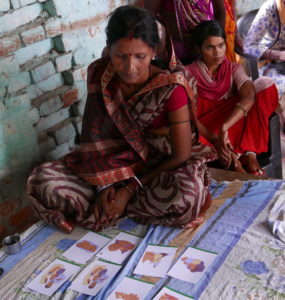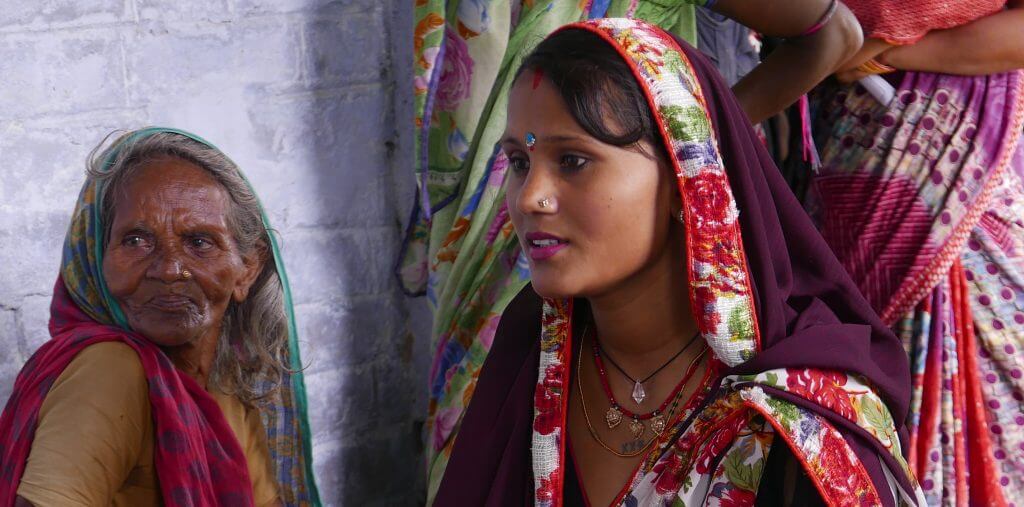Project RISE pushes forward after newfound field findings
A ripple of conversation filled the room as a group of mothers-in-law discussed the pregnancy and new-born care related practices in a small rural village located in the district of Muzaffarpur, India. The discussion, led by M4ID’s Design Research Lead Priyam Sharda, was part of the formative field visit relating to the project RISE. Partnering with a research team from the University of Texas Austin, M4ID seeks to understand and leverage rituals in India, for the sake of improving the quality of healthcare service delivery.

Conversation was facilitated with visual aids (original M4ID designs) to help both our team and the women visualise the pregnancy journey and post-birth events.
The women told our team about some of the traditional rituals people had once practiced surrounding childbirth. “Earlier people used to put honey drops or cow milk on a new-born’s tongue, but now it is not happening anymore,” explains one of the mothers-in-law.
Priyam tells us, “The visit was very fruitful. It was a great feeling to hear people talk of behaviours we had come across during our literature review, and especially those that support our indicative areas of focus.” She adds that the team learned of new rituals as well, such as one to initiate breastfeeding in both hospital and home settings.
“Another discovery was the continuing importance of the role that the traditional midwife, the dai, still plays in immediate postpartum care,” says M4ID’s Development Specialist, Petra Sillanpää.
Design Strategist, Akshay Roongta adds, “We also got to learn a great deal about the relationships between the various frontline workers and the effectiveness of their communication and service efforts over the last couple of decades. It seems that because of multiple frontline worker touchpoints and incentives to families, vaccination and institutional deliveries have really caught on. This has given us insight into the effectiveness of ASHA workers and Anganwadi workers as potentially effective platforms for design interventions in the latter phases of the project.”
The next steps in this project involve concentrating on synthesising the field visit findings. The project team is preparing for a September advisory board meeting that will gather a wide range of advisors to Delhi to go through the project journey to date.
For more information on RISE, please click here.
Back to news